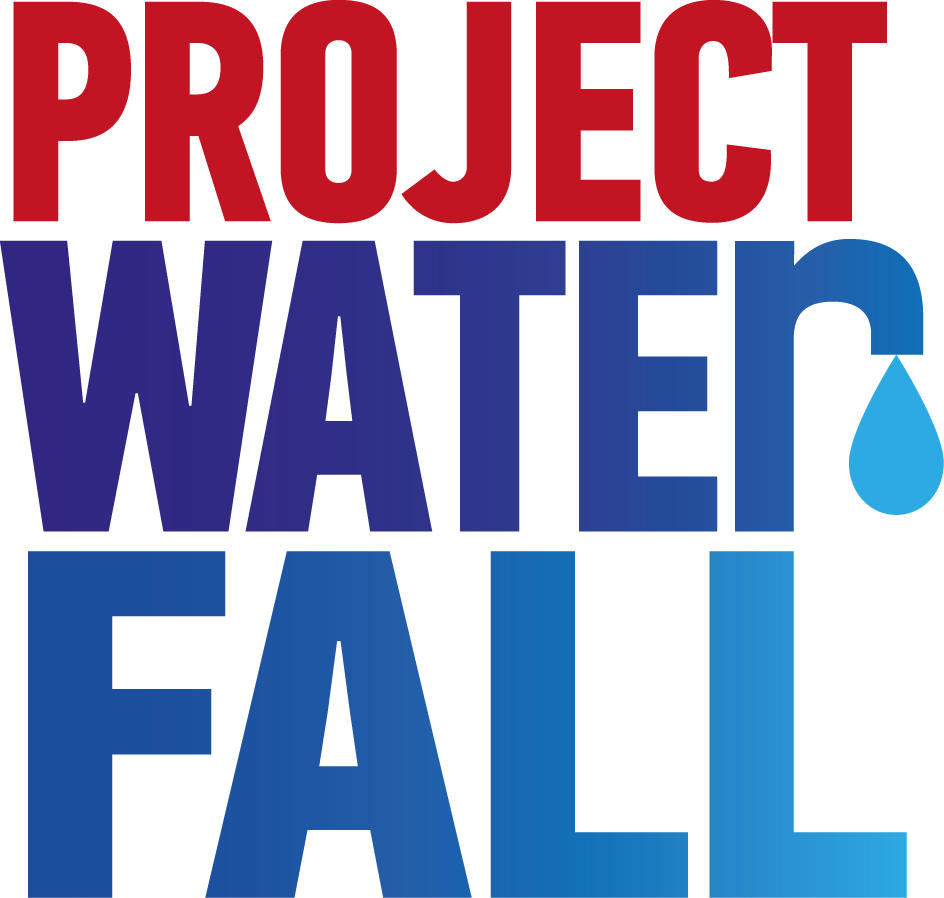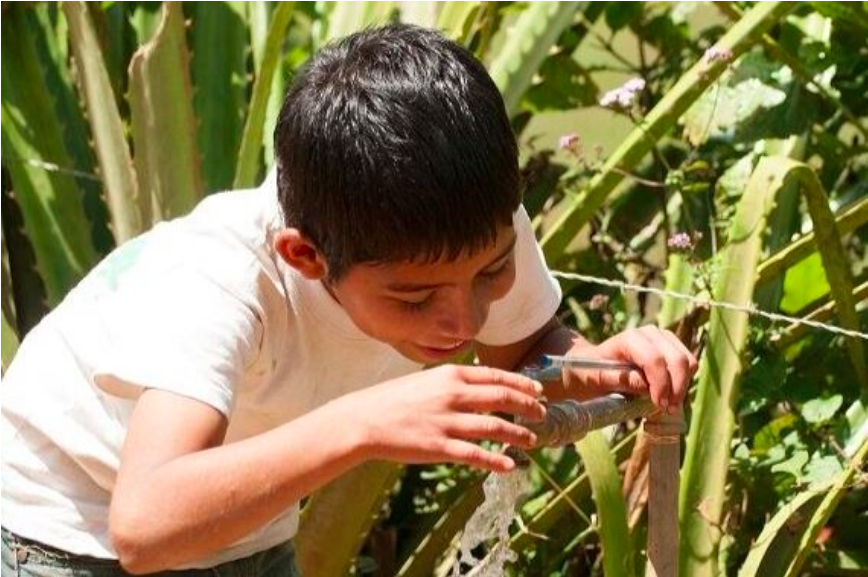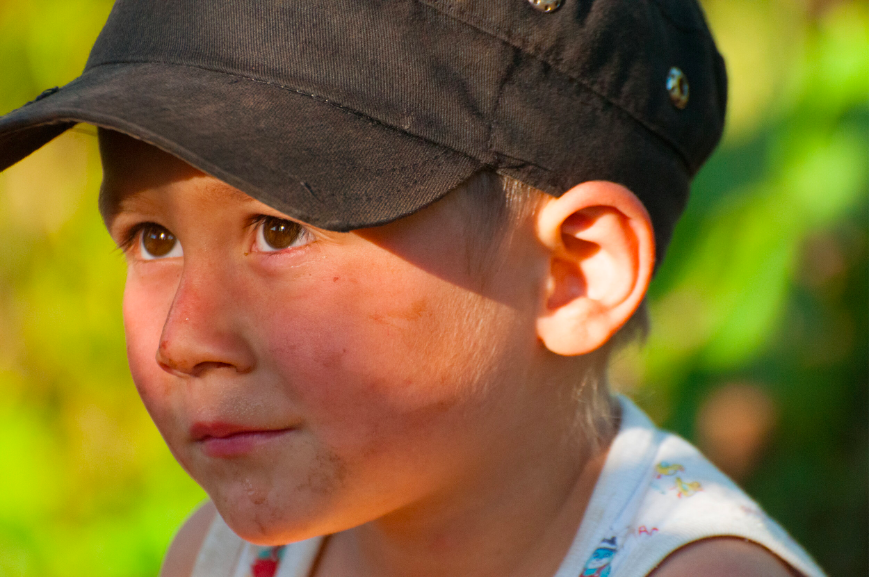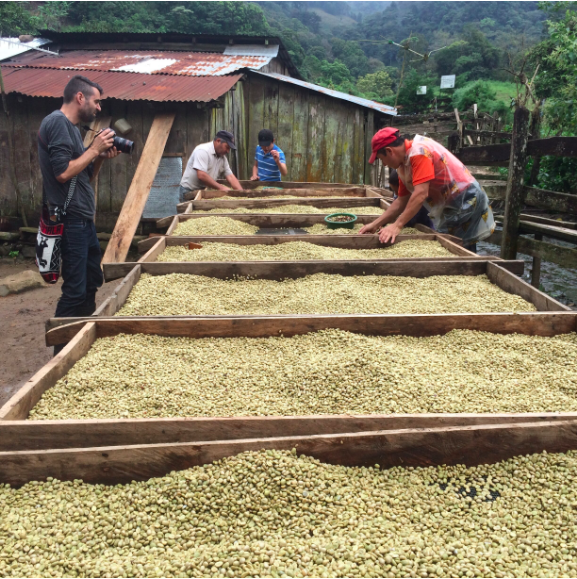Project Overview
The largest and poorest country in Central America, Nicaragua, is home to over 6 million people. Coffee farming has been an important part of the history and economy of the country and it's one of the country's principle products. 32% of the rural population in Nicaragua currently don't have access to clean drinking water.
With the support and donations of Project Waterfall, our partners, Water for People, have an ambitious model to bring clean water to all communities in the Jinotega area and work towards this goal on a district by district basis.The project, aptly named 'Everyone Forever' (EF), involves working in Nicaragua with local communities and governments to establish sustainable water services and sanitation across the district.
Project Stats
Start date: 2016
Status: Completed, 2018
Community: San Rafael del Norte and la Concordia district
People reached: 609
Delivery Partner: Water for People
about Nicaragua
6,100,000 population
32% of rural lack access to water
63% of rural lack access to sanitation
29% live below the poverty line
Project Waterfall’s donations helped Water for People provide over 32,000 people with access to clean water.
Clean Drinking Water at home
In our EF districts of San Rafael del Norte and La Concordia, programming to facilitate access to water in communities was executed as planned through a combination of gravity-fed systems connected to household taps, electric pumps and micrometers to track use and promote water conservation. In both San Rafael del Norte and La Concordia, staff and partners also implemented successful technical measures to increase water pressure in homes and improve the reliability of water services. Further, with technical support and training from Water For People, the users of several water systems installed household micrometers on their water systems with their own funds!
clean water in schools
Beyond the community, the project also entailed programming in schools. Comprehensive water, sanitation and hygiene education work in thirteen schools was undertaken. 1,136 students and teachers now have access to improved water systems and sanitation blocks that include both toilets and handwashing stations, and have also received hygiene education that promotes good practices around handwashing, food storage and personal hygiene to ensure that the full health benefits of their new school infrastructure will be maximized.
Community
By involving the communities with the construction of these measures as well as the funding and upkeep, they are instilled with a sense of ownership and pride. Community Water and Sanitation Committees (CAPS) are formed and keep track of the funds and financial records. They are trained to use AtWhatCost, a tool developed by Water For People to set tariffs that allows for full cost recovery of the systems. These advocacy efforts are key to achieving permanent water access that lasts for generations. This increase in local commitment is key in the maintenance and sustainability of the clean water programmes.
HOW WE DID THIS
Thanks to the investment by Project Waterfall in Nicaragua, Water For People was able to further its Everyone Forever (EF) strategy in Nicaragua during the 2 year period. This is how they did it:
Building a gravity flow system to pipe clean drinking water into every household, school and clinic in the districts.
Carrying out a district wide campaign which empowers communities to take charge of their own future when it comes to sanitation, including microloans to rehabilitate household latrines.
Parent-teacher associations are trained to maintain the infrastructure, and teachers are trained to lead the hygiene education process. Most schools in San Rafael del Norte are now implementing Hygiene Corners. This tool, allows teachers to integrate hygiene-focused activities into daily lessons.
Water For People has also worked with CAPS to adjust the tariff rates, so that the CAPS can cover at least 25% of their costs for major replacements in addition to all of the costs of administration, operations and maintenance.
Water For People also continued efforts to expand the sanitation marketplace, with impressive results. Over the course of 2016, staff worked with two existing micro-finance partners, Aldea Global and FUNDENUSE, and added a third micro-finance partner, Serfigsa, that will begin offering loans in 2017. From this collaboration, there are now 90 active credit promoters who serve as a sizable force promoting investment in sanitation.
Water For People also worked with two sanitation businesses who have sold 205 bio-digesters for household treatment of sanitation waste, as well as with 12 hardware stores that now offer materials and equipment for construction and/or rehabilitation of sanitation units.
Sustainability and education
As with all of Water For People’s country programs, staff in Nicaragua are taking thoughtful steps to foster the conditions that will ensure the provision of reliable water and sanitation services over the long term. A key component of Water For People water resources management work is to promote efficient water use and water conservation through installation of household micrometers on all drinking water systems. During the first half of the 2017 program year, Water For People and local partners had already achieved several notable advances in relation to the financial sustainability of water and sanitation committees. In San Rafael del Norte, users of two new water systems – La Naranja and San Gabriel – had installed household micrometers with their own funds. These tools are allowing the locals to be empowered and advocate for better water systems and lobby the local government.
Water For People also collaborated with San Rafael del Norte’s Ministry of Education delegations and the municipal water and sanitation offices to hold trainings on the “Beautiful, Healthy, and Clean Schools” program. The trainings were directed at teachers, students, and parents on topics related to handwashing, school hygiene, and the implementation of Hygiene Corners – a tool adapted from Water For People’s work in Guatemala that allows teachers to integrate hygiene-focused activities into daily lessons. (Hygiene Corners are interactive spaces within a classroom that contain visual reminders of good hygiene habits and often store soap, toothbrushes, towels, and other hygiene supplies for each student. Each corner also contains a hygiene wheel, which teachers spin to review different aspects of hygiene with students daily, such as handwashing.) Water For People plans to continue to encourage schools to develop operations and maintenance plans for school sanitation facilities and implement Hygiene Corners. In La Concordia, Water For People partnered with the Ministry of Health during the 2017 program year to offer five trainings to teachers, students, and parents on a variety of topics, such as, chlorination, waterborne illnesses, environmental care and protection, and the administration, operation, and maintenance of school water and sanitation facilities.
In hosting the first-ever series of sanitation exclusive Reflection Sessions with each country program, Water For People demonstrated prioritisation of this critical and urgent need. Quite notably, Nicaragua hosted Water For People’s inaugural Sanitation Reflection Session in February, which was used as a pilot session for our other eight country programs to follow. The partnership with Water for All has enabled Water For People to highlight not only our presence and our work in Latin America, but has also assisted by raising public awareness regarding the sanitation crisis.
the future
“We used to suffer more from stomachaches, skin diseases, and parasites,” says Marcial, the president of the community water and sanitation committee in his small town of El Plantel in San Rafael del Norte, Nicaragua. “Usually, the ones most affected by drinking contaminated water were children and elderly community members. Now you can rest easy when drinking water, knowing that it doesn’t carry any sicknesses.”
Now that the new system is completed, Marcial and the water committee are ensuring sustainability by having micrometers installed, which encourages water conservation. Local leaders like Marcial play a key role in reaching Everyone Forever with reliable water services. “The community is going to improve now, since there will be less contamination and less illness, all thanks to this new water system,” he says.
This small story shows how much the brighter the future now looks, thanks to the work of our partners and your donations. A new generation will begin to know life with no dirty water, and children will be able to focus on education and their futures in a way that was never possible before.
We will be continuing to develop this partnership with Water For People and supporting their mission to reach 'Everyone, Forever' in the La Concordia and San Rafael del Norte districts of Nicaragua. Please join us in supporting this ambitious and far reaching project.










